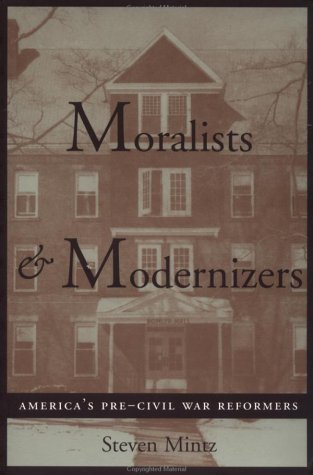The American Moment
1 total work
The decades before the Civil War saw the first secular efforts in American history to remake society through reform. Reformers launched unprecedented campaigns to reform criminals and prostitutes, to educate the deaf and the blind, to guarantee women's rights, and to abolish slavery. Modern systems of free public schools, prisons, and hospitals for the mentally ill are all legacies of this era. This book tells the story of America's first age of reform, combining portraits of leading reformers and movements with analysis of religion, politics, and society. Arguing that the reform impulse grew out of the era's peculiar mix of fear and hope, the book shows that reform arose not only from fears of social disorder, family fragmentation, and widening class divisions, but also from a millennialist sense of possibility rooted in new religious and philosophical ideas. It then examines three distinct responses to pre-Civil War America's pressing social problems. Moral reform sought to create a Christian moral order using moral suasion. Social reform combatted poverty, crime, and ignorance through new institutions offering non-authoritarian forms of social control.
Radical reform sought to regenerate American society by eliminating fundamental sources of inequality such as slavery and racial and sexual discrimination. An epilogue fits antebellum reform into the larger context of America's liberal tradition.
Radical reform sought to regenerate American society by eliminating fundamental sources of inequality such as slavery and racial and sexual discrimination. An epilogue fits antebellum reform into the larger context of America's liberal tradition.
